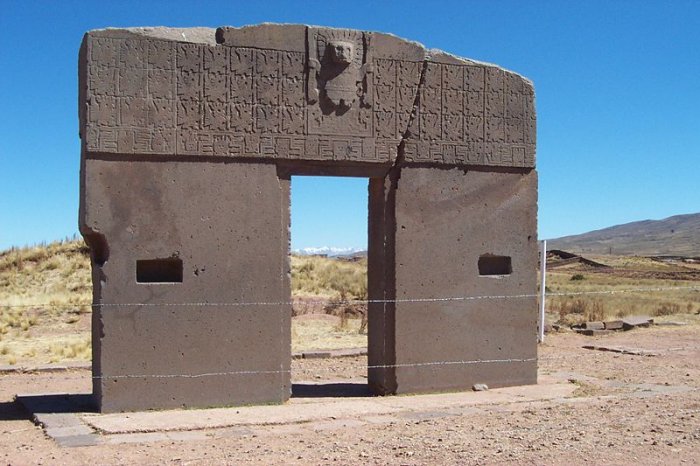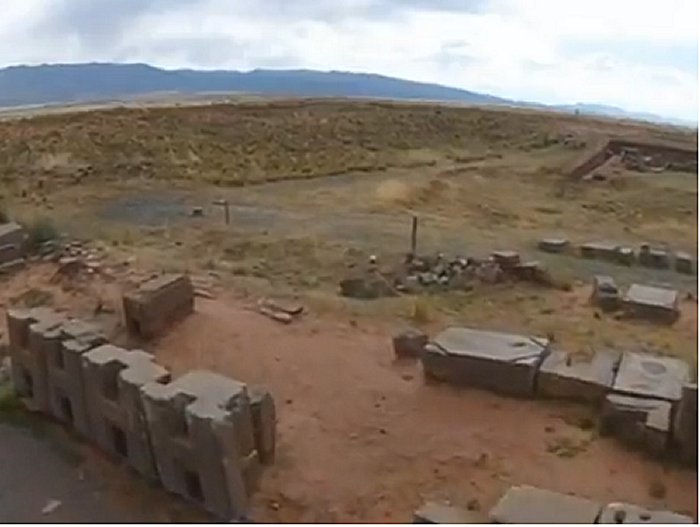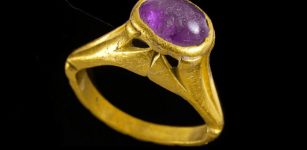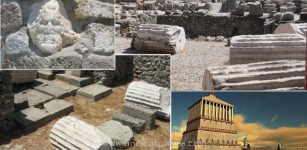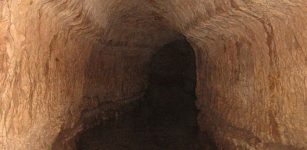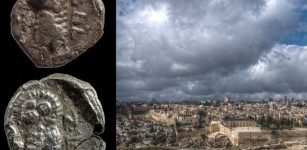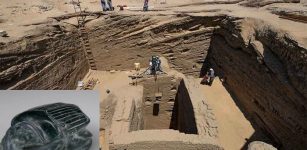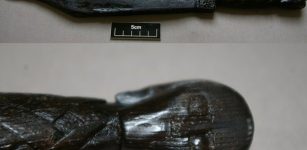Underground City And Pyramid Discovered At Tiahuanaco, Bolivia
AncientPages.com - The world beneath of feet is still greatly unexplored. Mysterious ancient underground cities, strange structures and vast tunnels are examples of what archaeologists can encounter when exploring the secrets of the subterranean world.
This is exactly what happened in Bolivia when scientists discovered a previously unknown ancient underground city beneath the famous and magnificent site we know as Tiahuanaco, also known as Tiwanaku.
The Gateway of the Sun from the Tiwanaku civilization in Bolivia. Credit: Wikipedia
The ruins of Tiahuanaco testify to the great Andean empire and the site was most likely used as a moral and cosmological center by our ancestors.
The age of Tiahuanaco has been greatly debated.
Archaeologist and author Arthur Posnansky (1873–1946), dated Tiahuanaco to 15,000 B.C., making it one of the world’s oldest cities. Modern scientists disagree and say Posnansky “misused archaeoastronomical evidence.”
Whatever the case may be there is no longer doubt that there is still much to be learned about Tiahuanaco.
The Ministry of Cultures of Bolivia has announced scientists have discovered a previously unknown ancient subterranean world beneath this mysterious site.
See also:
Waru Waru – Ancient Andean Irrigation System Brought Back To Life
Puzzling Palpa Lines In Peru Made By The Paracas Culture Are Even Older Than The Nazca Lines
Using precision cameras that took pictures from the air and infrared ray technology, scientists were able to take penetrate the ground and the efforts were rewarding. Researcher say they found a pre-Hispanic citadel, an underground plaza and up to two platforms of what is considered a pyramid beneath Tiahuanaco.
Scientists know there are ancient structures beneath Tiahuanaco, but the data must be confirmed. Image credit: reduno.com
The findings must be officially confirmed. Excavation drilling will be carried out in the southwest and north, with the aim of confirming or delegitimizing the data obtained," Julio Condori, general director of the Center for Archaeological, Anthropological and Administration Research of Tiwanaku (CIAAT).
AncientPages.com

